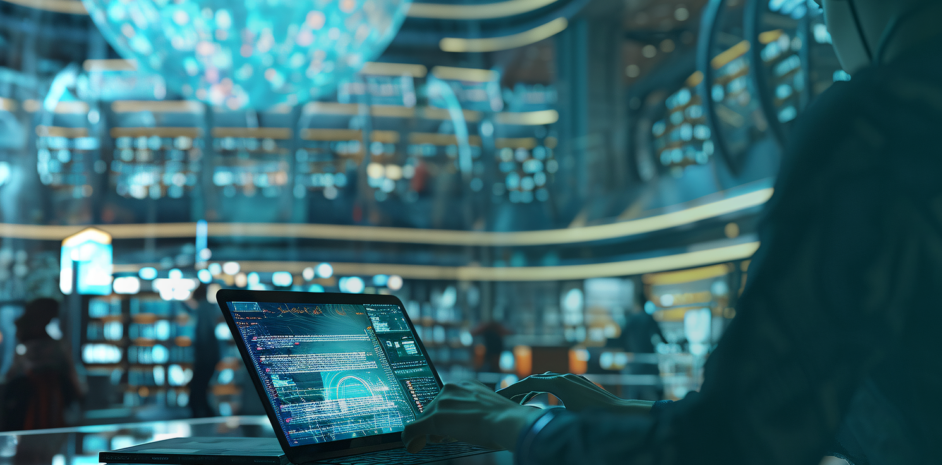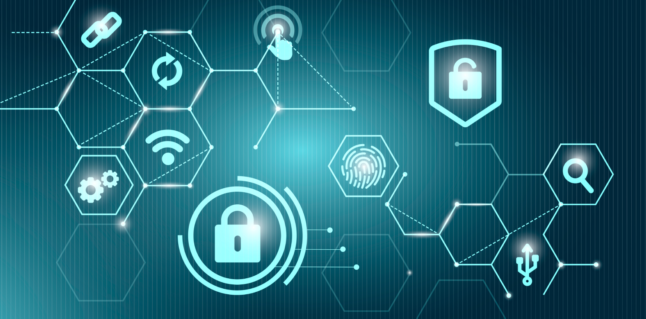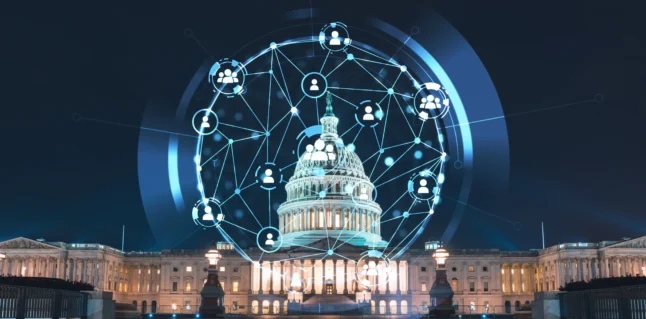AI’s Role in National Security, Healthcare and Government Operations: Insights from Dr. Lisa Costa
February 19, 2025
In an insightful conversation, Dr. Lisa Costa, the former CTIO for U.S. Space Force, shared her perspectives on commercial AI and its applications for national security, healthcare, and federal civilian operations.
Key takeaways
AI protecting warfighters in mission scenarios
AI is fundamentally changing the dynamics of military operations, especially when it comes to protecting warfighters in high-risk mission scenarios. Dr. Costa emphasized the importance of AI’s ability to conduct mission familiarization before soldiers ever set foot on the ground.
“Being able to rehearse target familiarization and mission objectives repeatedly is critical for ensuring that military personnel are prepared to make the right decisions in complex environments,”
Dr. Costa
In addition, Dr. Costa stressed the role of AI in automated threat detection, particularly in missile defense scenarios. Human response times are often too slow to keep up with the rapid pace of modern threats, but AI systems can detect missile launches and issue warnings to affected units within seconds. This capability is crucial not only for protecting soldiers but also for safeguarding innocent civilians and critical infrastructure in hostile zones.
AI vs. traditional methods in government and defense
Dr. Costa also discussed how some government agencies still rely on traditional methods, such as standard operating procedures (SOPs), to make decisions in high-stakes environments. While SOPs have their place, she pointed out that AI offers a more dynamic and efficient approach. “Rather than relying on checklists and predefined responses, we want AI to learn the most effective methods for achieving desired outcomes based on a commander’s intent,” she explained. AI can process vast amounts of data in real-time, uncovering insights that would take human teams days, if not weeks, to identify.
The future of defense and government operations lies in AI’s ability to optimize decision-making and adapt to changing circumstances. While human oversight remains critical, AI can handle routine tasks and data analysis, allowing personnel to focus on higher-order tasks.
AI’s role in civilian agencies
One key area where AI is making a difference is in the management of citizen services. For instance, AI can automate routine inquiries, reducing wait times and allowing human agents to focus on more complex, high-priority issues.
Dr. Costa pointed to challenges such as navigating bureaucratic systems, like those in the Veterans Affairs (VA) department, where individuals often get lost in the system. AI can help by streamlining communication and ensuring citizens receive the resources they need without delays or complications. By handling mundane tasks, AI frees up human workers to offer personalized attention where it’s most needed.
AI transforming healthcare and national security
With the rise of wearable devices, electronic health records, and fitness trackers, healthcare systems are now inundated with a wealth of personal health data. AI can aggregate and analyze this data to assist doctors in making life-saving decisions.
“In emergency situations, AI can provide insights from real-time data—such as heart rate, oxygen levels, and activity levels—that allow healthcare professionals to make informed decisions quickly.”
Dr. Costa
In the realm of national security, Dr. Costa mentioned AI’s application in counterterrorism and other high-risk defense operations. For example, when tracking potentially dangerous individuals or organizations, AI can quickly analyze vast amounts of data to identify threats, ensuring that responses are fast and precise. This becomes even more critical in situations like hypersonic missile threats, where the sheer speed of the situation means human decision-making alone is not fast enough. AI, in these cases, can analyze the threat, make a decision, and act before it’s too late.
Conclusion: trust, security, and explainability are critical for successful GovAI
Dr. Costa’s insights underline the transformative potential of AI in national security, government operations, and healthcare. AI can help organizations make faster, more effective decisions, safeguard personnel, and improve service delivery in both military and civilian contexts. However, trust in AI is critical, especially when the stakes are as high as national security or citizen safety.
Before commercial AI can be widely adopted, transparency, trust, and explainability concerns must be addressed. These include concerns around data security and the explainability of AI decisions.
“We cannot afford black box solutions. Federal agencies need to ensure that the AI systems they use are transparent, understandable, and secure.”
Dr. Costa



